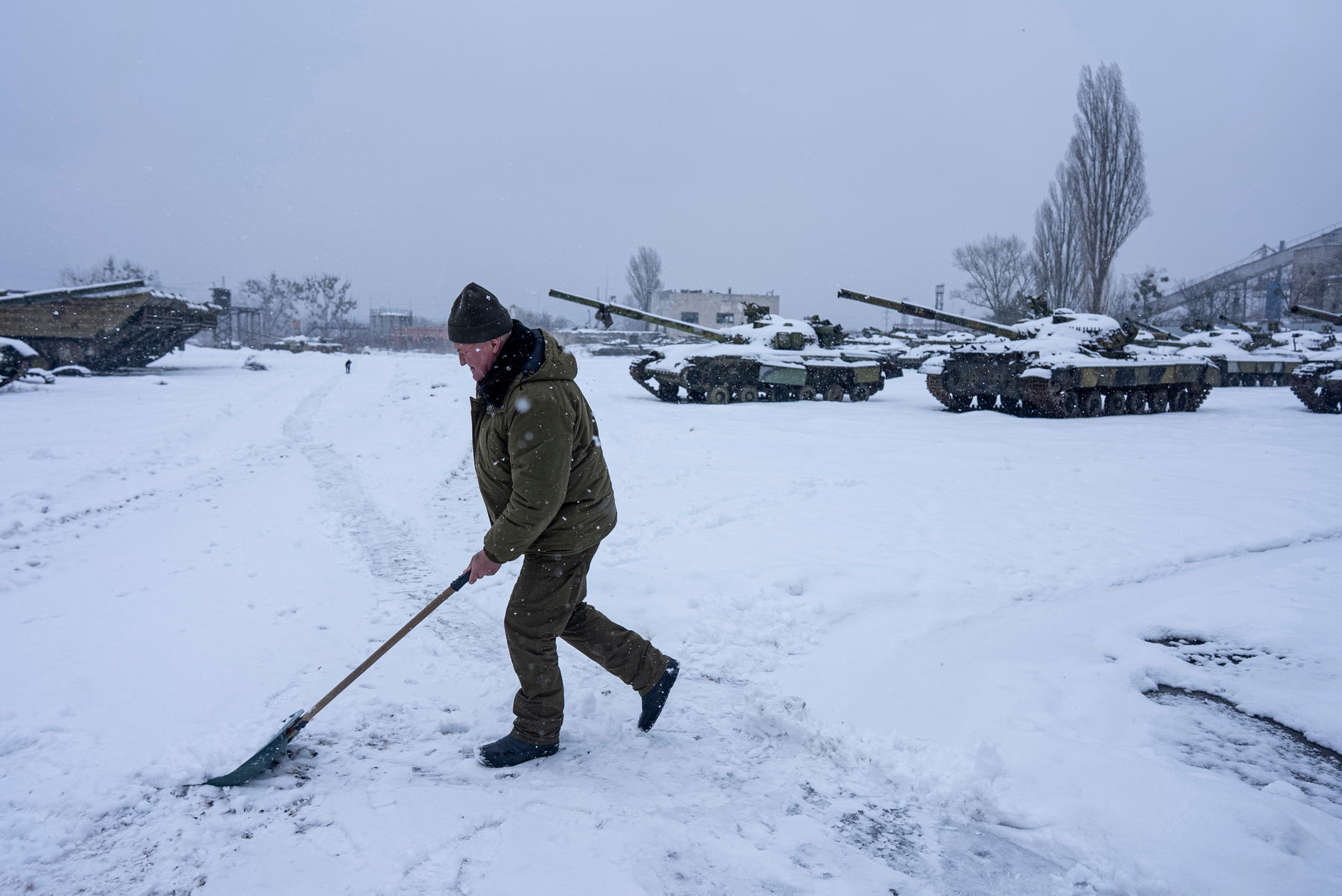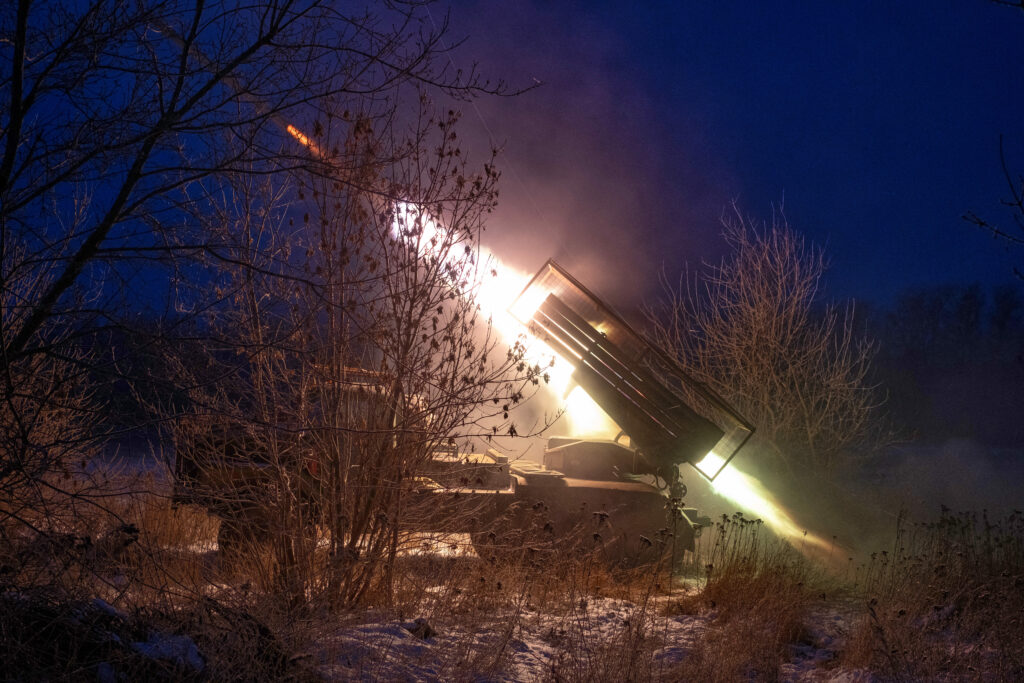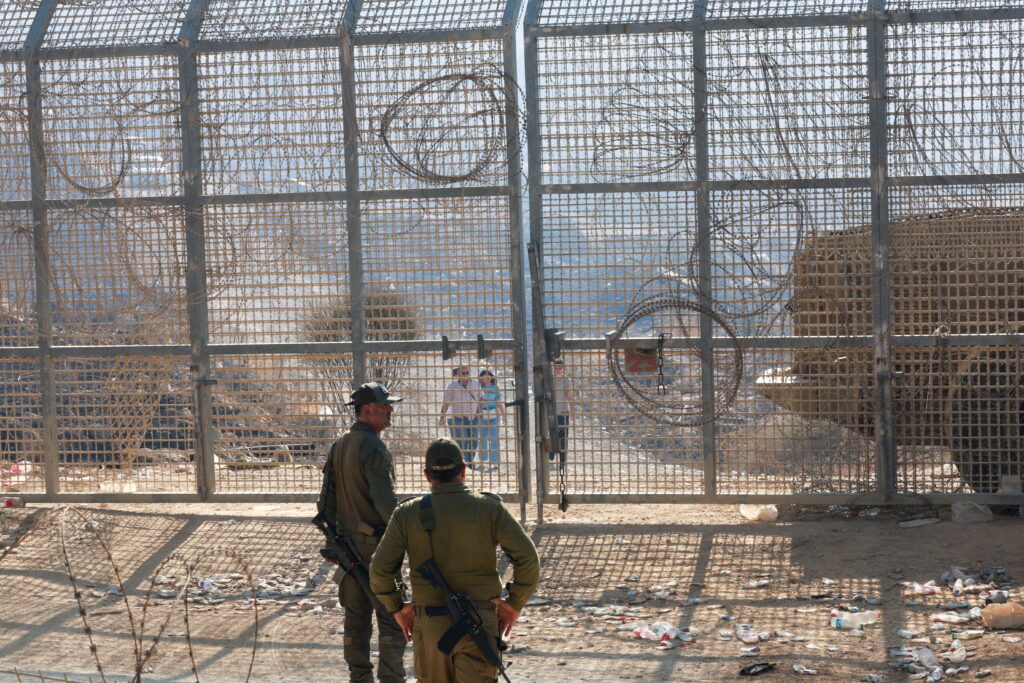It is hard to escape the sense that Ukraine may soon face a refreshed Russian onslaught. The nuances of Ukraine’s linguistic and political divides are back in the news, generating coverage across international media at a pitch last seen amid Russia’s 2014 invasion of Crimea. (In contrast to the run-up to that act of war, though, US and Russian officials are at the least regularly meeting with one another.) Across the region, the Biden Administration and other NATO allies are deliberating on deploying thousands of extra troops to Eastern Europe, facing down a far larger deployment of Russian forces by Ukraine’s frontiers. But in Ukraine itself, there is no credible risk the US or other NATO members will deploy their own troops — and the extra defense materiel offered in recent weeks can hardly change the tactical let alone the strategic considerations of a Russian-Ukrainian war, so great is the imbalance between Kyiv and Moscow’s militaries.
This absence of western rescuers may alarm defence planners in Kyiv. Yet as absent as Ukraine has been from Western military posturing, so too has Ukraine been conspicuously absent from Russian President Vladimir Putin’s statements. In fact, Russia and the US, along with NATO allies, have been discussing a wider crisis in their own relations regularly in recent weeks, without Kyiv’s direct involvement. US Secretary of State Anthony Blinken may have travelled to the Ukrainian capital in a show of support, but Washington’s threats have remained centered on sanctions on the Kremlin and Russian economy, while the Kremlin’s demands have focused on NATO and US concessions — not on re-orienting Ukraine.
What is clear, therefore, is this is not a crisis resulting from the geopolitics of Ukraine and her alignment, as was the case in 2014. Instead, this is a crisis stemming from the geopolitics of Russian-West relations, which is being played out over and above Ukraine.
Kyiv’s potential NATO membership is merely the MacGuffin that keeps the crisis rolling along. Russia has, in fact, been quite clear about this, making demands of the US in particular that extend far beyond Ukraine’s security alliance membership. But Washington too has shown a willingness to directly discuss the wider security framework affecting US-Russian relations. Blinken may assert that the ‘real issue’ is Ukraine but this is not by any means the full picture.
The question ‘What Putin Wants from Ukraine’ has dominated Western discourse. What the West wants, however, is far less commonly discussed. Washington and NATO say they are dedicated to the principle that Ukraine and other states can choose their own foreign policy alignment, denying the Kremlin’s demand that such membership be formally excluded. Both sides are talking past one another in doing so, but the fact that bilateral talks are being held regularly, and that the current crisis comes at a far less turbulent time in Ukrainian domestic politics than in 2013−2014, shows should mitigate these concerns. Ukraine is as much the MacGuffin for Washington as NATO is for Moscow.
Russia’s threat of conflict has brought Washington and NATO to the table. But the divisions among the Western coalition have attracted significant attention. NATO members are frankly not all on the same page about how to deal with Russia’s demand. The comparatively hesitant approach taken by the new German coalition under Chancellor Olaf Scholz has attracted particular criticism from other Western allies, even if it is more assertive than that taken by the governments led by his predecessor Angela Merkel. But German business is not the only constituent of the Western alliance that wants a working relationship with Putin’s Kremlin. France’s President Emmanuel Macron meanwhile believes Paris should lead Europe in pursuing its own understanding with Moscow independent of Washington (though this may have more to do with election posturing than genuine aspiration). Italian business leaders have sought the same, a number of them even joined a 26 January Kremlin-led Zoom call. Meanwhile the UK has joined the US in taking an assertive approach, supporting calls for more Eastern European deployments. UK Defence Secretary Ben Wallace even penned an article to rebut Putin’s own musings on Ukraine.
Reasons for a new shared understanding between Russia and the West
Yet these divisions are not so cut-and-dry on national lines as they may appear. There are plenty of bankers in London — not to mention real estate agents and lawyers — more than happy to take Russian business. The same applies in Miami. The Biden Administration’s kleptocracy initiatives are meant to make such dealings less appealing even if geopolitical tensions cool. Though there is no indication yet they will be successful: one need only look to Britain to see how such an agenda can be ineffective even as a government trumpets it. Regardless of how viable those kleptocracy initiatives prove, there are more sanguine and less pecuniary reasons why the US, UK and others are willing to entertain discussions on a new framework for handling relations with Russia.
The threat of election interference from Russia has been at the forefront of US political debate for more than six years now. Russia may be, in the eyes of some key US policy makers, a ‘regional power’, but it is one that is more than supportive of Beijing, with which it has a complicated quasi alliance. That China is the US’ key adversary is one of the only points of bipartisan agreement in Washington. The ability of sovereign states to choose their own foreign policy orientation, particularly when it is towards the West, may genuinely be of value to the US. But creating an environment to allow ever-closer links between Moscow and Beijing is not. The state of Russian-US tensions also leaves the US having to boost its defense posturing in Europe, even as it ostensibly continues to ‘shift to Asia’. Much of this applies in the UK as well, where Moscow has also been accused of election interference, not to mention deploying radioactive and nerve agents to target political opponents.
The Biden Administration and other Western allies want a workable relationship with Russia. This is not limited to recent nuclear talks that saw the US and Kremlin agree to extend the New Start within two weeks of Biden taking office, or to subsequent discussions about cyber-warfare — all of which have been seemingly forgotten in the media frenzy over potential war in Ukraine. A new framework for the bilateral relationship and security interests in the post Soviet space offers the potential for Russia to prompt fewer domestic tensions in the US and UK as well as for it to be less of a concern to European security. The US wants to mitigate the risk that Russia will be a force amplifier for Beijing. These desires are broadly shared across the Euro-Atlantic alliance.
Russia too has much to gain from such a new framework and understanding, hence why it precipitated the current spat. Gaining concessions from the US is more important to the Kremlin than forcibly returning Ukraine to its sphere of influence. After all, even if the West were to shun Kyiv’s interest in NATO membership, there is a tacit acknowledgment that Ukraine is too far gone to be brought back to the Kremlin’s fold. Moscow hardly complains about Ukraine’s EU Association Agreement and its Deep and Comprehensive Free Trade Agreement (DCTA) with the EU or Kyiv’s aspirations towards Brussels, though these formed the core of its casus belli in 2014. The Kremlin knows that an invasion would not force Kyiv back into its fold. Were such action to extend significantly beyond the current lines of control in the Donbas, there could be an insurgency on its frontier.
Putin himself has given hints that such a new framework is what the Kremlin really desires. In his latest annual press conference, held on 23 December 2021, Putin brought up the horror of the collapse of the Soviet Union, a favorite bugbear. Notably, however, in describing the collapse he mentioned that the Soviet Union was subsequently divided into 12 parts. This is the closest any Russian (or Soviet) leader has come to publicly acknowledging the Western position that the Baltics were illegally occupied — with Estonia, Latvia and Lithuania there were after all 15 successor states, all ‘Union Republics,’ that emerged from the USSR.
For Putin’s Kremlin to acquiesce to this Western understanding of history is notable. If Putin is willing to go that far, he may be willing to go a bit further. The threat of war in Ukraine, even if limited in scope, credibly looms if the West fails to pick up on these messages. The key failing thus far is to focus too much on what Putin wants to reach an agreement, and too little on what the West wants.










